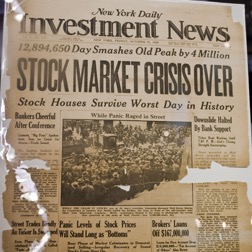When markets fail
From WikiEducator
Market failure refers to a situation in which there is an inefficient allocation of goods and services in the market. Inefficient allocation takes place when pure self-interest drives the maximizing behavior of economic agents.
Market failure is attributed to the existence of externalities, common property resources, public goods, and asymmetric information.
Market failure often leads to government intervention designed to drive the market towards efficiency.
